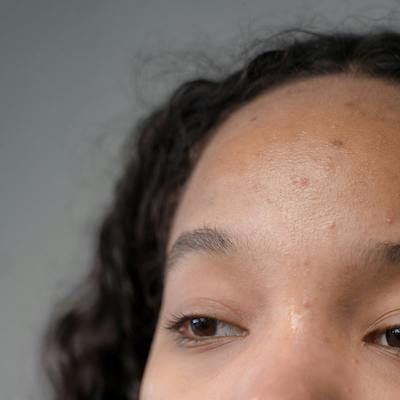Article
German Study Expands Genetic Variant Spectrum Of Rare ‘Uncombable Hair Syndrome’
Author(s):
A study from Germany elucidated new information on the rare uncombable hair syndrome, changing the ways in which the syndrome may be analyzed.
Regina C. Betz, MD

New pathogenic variants were identified in individuals with uncombable hair syndrome (UHS) in a new study, extending the known genetic variant spectrum of UHS based on an analysis of the largest worldwide collective of affected individuals.
Uncombable hair syndrome (UHS) is a rare autosomal recessive disorder affecting the hair shaft that manifests during infancy and results in dry, frizzy, and wiry hair that is unable to be combed flat, explained investigators led by Regina C. Betz, MD, and F. Buket Basmanav, PhD, from the University of Bonn’s Institute of Human Genetics and University Hospital Bonn.
As a result of Betz and colleagues’ molecular genetic analysis of UHS, assignment or confirmation of a clinical diagnosis of UHS may now be based upon molecular genetic diagnostics. It is for this reason that the research into this rare disorder was conducted.
“At the time of our 2016 report, around 100 cases of UHS had been reported,” they wrote. “Subsequent to our report, we were contacted by a large number of clinicians and members of the public from across the world with information on further possible UHS cases.”
When they published research on this rare disorder in 2016, it had likely been the first known look into UHS’s molecular genetic information, Betz and colleagues wrote. With the new cohort study, this relatively unknown disorder may become better understood in the clinician community.
Research and Methods
Both the 18 individuals reported in the investigators’ 2016 study, and an additional 89 unrelated individuals potentially dealing with UHS—69 females and 20 males in total—were used to find and identify pathogenic variants. These 107 index patients each had a suspected diagnosis of UHS, in addition to having family members recruited for the study around the world from January 2013 to December 2021. The investigators used referral centers to enroll participants of all ages, races, and ethnicities, or they were recruited by taking action themselves after coming into contact with the researchers.
Investigators used saliva and/or blood samples to extract array-based DNA genotyping, along with clinical photographs, Sanger or whole-exome sequencing, and 3-dimensional protein modeling. They gathered information such as frequency counts to elucidate the identified pathogenic variants and genotypes’ distribution.
The genetic analyses for the research were conducted from January 2014 to December 2021 in Germany. The investigators also performed haplotype analysis for the 4 most commonly seen pathogenic variants in PADI3 using single-nucleotide polymorphism (SNP) chip data.
The origin countries of those who were genetically analyzed were also shown by the researchers in relation to the identified pathogenic variants to give an overview of UHS-related genetic variation spectrum diversity across the world.
Study Results
The investigators found that the genetic traits of UHS patients could be established in 80 of the 107 index patients, specifically those carrying biallelic pathogenic variants in PADI3, TGM3, or TCHH. These genes are known to encode functionally related hair shaft proteins, affecting the formation of the hair shaft. When deimination by PADI3 occurs, investigators explained, the charge of the structural hair shaft protein trichohyalin is reduced, enabling future interactions with the intermediate keratin filaments in hair.
The cohort study also concluded that 11 of the 80 index patients had already had their molecular genetic information published. The researchers found that in 76 of the index patients, there was an association between the UHS phenotypes and pathogenic variants in PADI3. In around 99% of every PADI3 variant carrier observed, 2 recurrent variants were detected.
Investigators found 8 novel pathogenic variants in PADI3 during the study. Consequently, they believe that other rare pathogenic variants in PADI3 may exist and may be identified in the coming years.
The study found that of those PADI3 variants observed, the 2 most common variants made up 73 and 57 of the 152 PADI3 alleles in total. Two patients carried pathogenic variants in TCHH and 2 carried pathogenic variants in TGM3. A founder effect was suggested by a Haplotype analysis for the PADI3 gene’s 4 most commonly observed pathogenic variants.
The investigators also found that those with pathogenic variants in PADI3, TGM3, or TCHH all demonstrated an autosomal recessive mode of inheritance. Before this genetic analysis, certain pedigrees were reported and appeared to maintain an autosomal dominant inheritance with a respective affected parent, previous research suggests.
“This cohort study expands the pathogenic variant spectrum of UHS and found that PADI3 was most commonly associated with this rare hair phenotype,” they wrote. “The present results also suggest that the 4 most commonly observed pathogenic PADI3 variants are far more likely to have descended from a respective common ancestor rather than having… occurred independently multiple times.”
Betz and colleagues’ research into the genetic variant spectrum of UHS, thanks to the discovery of pathogenic variants in PADI3, TGM3, and TCHH, may now help clinicians and UHS patients by introducing molecular diagnostics.
The study, “Assessment of the Genetic Spectrum of Uncombable Hair Syndrome in a Cohort of 107 Individuals,” was published online in JAMA Dermatology.





